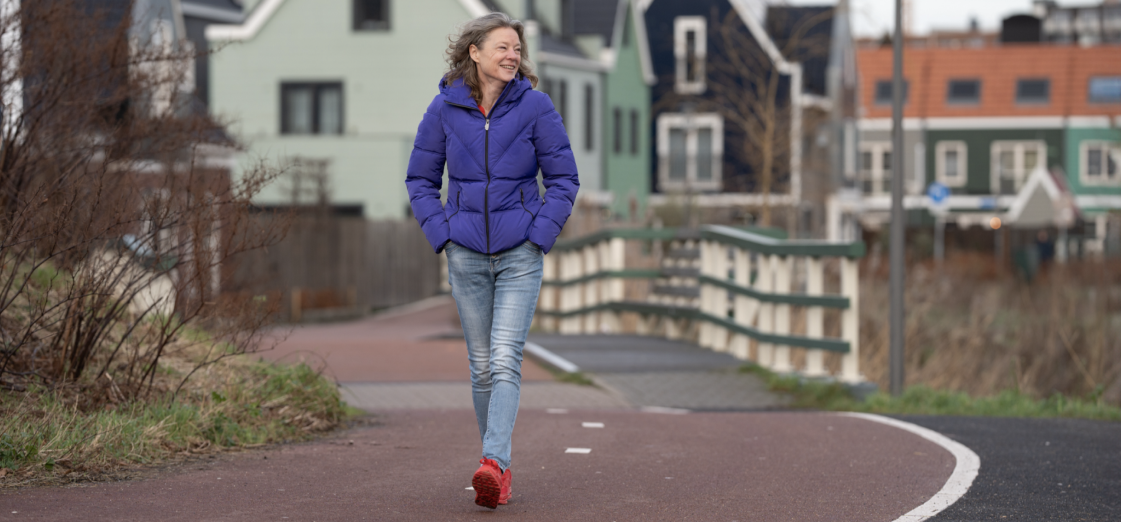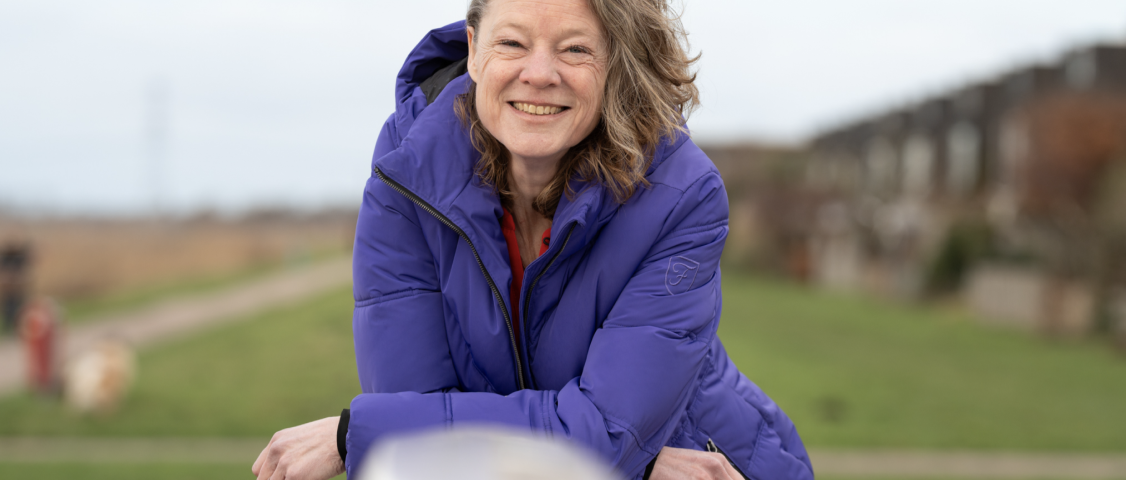- Artikel
- Bron: Campus Sanofi
- 25 aug 2025
How Nicole Turned Her Diagnosis into Strength and Inspiration for Herself and Others

The Diagnosis That Changed Everything
Nicole doesn't remember the details of her diagnosis exactly, but the stories from her parents have always stayed with her. "I had lost a lot of weight, felt lethargic, often lay on the couch, and was constantly thirsty," she says. "My mother knew something was wrong, but only after advice from an aunt did she specifically ask for a test. And that immediately confirmed her suspicion: my blood glucose levels were immeasurably high." She was immediately admitted to the hospital but looks back on that time with a positive outlook. Two weeks later, she was finally allowed to go home, and her two older sisters had hung streamers, balloons, and a big "Welcome Home" sign on the front door.
"I Didn't Realize It Was Forever"
What the diagnosis of type 1 diabetes exactly meant didn't sink in at the time. "I was too young to understand what was happening and just let it wash over me. For me, it was just part of life," she says. "The realization that this was chronic came much later."
For her family, however, the impact was significant. Nicole's father remained sad about the diagnosis, even until his death. Her mother was mainly worried that something would go wrong and was therefore extremely dedicated to her care.
"My oldest sister became a sort of caregiver sister, while my middle sister was confronted with it head-on. During a hypo, I often became very rebellious and refused to eat, not even dextrose sugar. Once, my sister carried me home from school on her back while I was angry and didn't want to listen to her. It wasn't meant personally, but she felt that frustration."
A Life Full of Structure
Given the fact that there was no family history of the condition, it brought a lot of uncertainty and worry. Nicole's childhood revolved around strict routines. "Injecting twice a day, fixed meal times, and always a clear diet. I even wore two watches so I knew exactly when I had to eat."
Yet her parents did their best to make life enjoyable for her. "My father and I had our own ritual around injecting insulin. I would sit in a special chair, and he would make sure everything was ready. Those were our father-daughter moments," says Nicole with a smile.
And on Sundays, she was allowed a sandwich with chocolate sprinkles, always giving the longest sprinkles to her father. "Those little things made the difference." Her mother focused on nutrition and kept a notebook in which she wrote everything down, even how many grams of sugar I was allowed. That was her way of maintaining control.
But there were also painful moments. "During Sinterklaas at school, there was a fondant frog on every desk except mine. I had to go to the teachers' room alone to get sugar-free chocolate. That felt lonely and strange."

Openness and Challenges
Nicole's parents taught her early on to take responsibility for her own blood glucose levels. "They wanted me to manage my own care, and that had a hugely positive impact on me. I learned not to let anything hold me back."
That independence meant that Nicole always spoke openly about it. "At the HTS, I immediately told my classmates and injected insulin right in the cafeteria. I found it important to explain what could happen so that people knew what to do if I fainted." That openness gave strength but also brought challenges. "During a job interview in my twenties, I was very honest about my situation. Shortly after, I was rejected, and I strongly felt that my openness was the reason. That hurt me. From that moment on, I only told them after I got the job."
During the COVID-19 pandemic, things went wrong again. "I applied digitally and got a hypo in the middle of the interview. I tried to push through, but it was clearly not going well. Normally, I always prepare carefully: I check my blood glucose and make sure I have something on hand. This time, I was too nonchalant. That moment made me realize how second nature my preparations are to me, while people who don't live with type 1 diabetes never have to think about it."
A Career, Despite or Because of Living with Diabetes
After studying Chemical Technology, Nicole worked for years in chemical factories. But for the past five years, she couldn't find the right job. "In 2022, I decided to change my career," she says. "That same year, after forty years of resistance, I finally allowed technology on my body. I started using an insulin pump with a sensor, and that changed everything. It inspired me to do volunteer work at Diabetes+."
Nicole now works as an insulin pump trainer at a pump manufacturer. "I never thought my own diagnosis would bring me so much motivation. It feels like I have finally found my calling."
As an insulin pump trainer, she supports others and finds it important to share her personal experiences. "I show people that they are not alone. Everyone has different experiences living with diabetes, and I find it beautiful to hear that people recognize themselves in my stories." Her work goes even further: "I help people not only with technology but especially with the feeling that they are not alone and that I can offer them a perspective on a better quality of life. I find that perhaps the most valuable."
Her message is simple but powerful: "Technology can support you, but the most important thing is to take the time and space to reorganize your life. If you have that, you can also lead a beautiful and full life."

Everything is Possible When You Focus on What You Can Do
Looking back on her life, Nicole emphasizes her resilience. "I needed time to accept my limitations and eventually overcome them. But because of that, I can now say: nothing is impossible."
She has challenged herself in countless ways. During her first pole dancing lesson, she got a hypo within ten minutes, but she didn't give up. "There I was in the dressing room, while my trainer comforted me. It felt like I had failed. But I wanted this so badly that I kept looking for a solution. Eventually, my body got used to the effort, and it worked."
A multi-day trek through the Thai jungle also posed a huge challenge. "Three days of walking, sleeping in nature, and dealing with the heat. I often had hypos and had to constantly manage my blood glucose levels, but what I remember most is the beautiful surroundings. Despite the setbacks, I kept focusing on what I could do."
The moments when it hasn't limited her are what Nicole cherishes the most. "Once during a training session with my personal trainer, I completely broke down in terms of stamina and strength. But for the first time, I didn't feel held back, and that gave me so much confidence."
Inspiring Others
Now she helps others with her story. She also coaches parents of children living with type 1 diabetes and shares her experiences to support them. "When I told my mother about this, she wished she had had coaching and support herself forty years ago. That recognition was so valuable to me."
After more than forty years of living with diabetes, Nicole has one important message: "Nothing is impossible. If you take good care of your health and prepare yourself, you will discover that more is possible than you think. Ultimately, we all want the same thing: to live, work, exercise, and enjoy life, just like anyone else."
Neem contact op

MAT-BE-2500586 V1.0 JUN2025